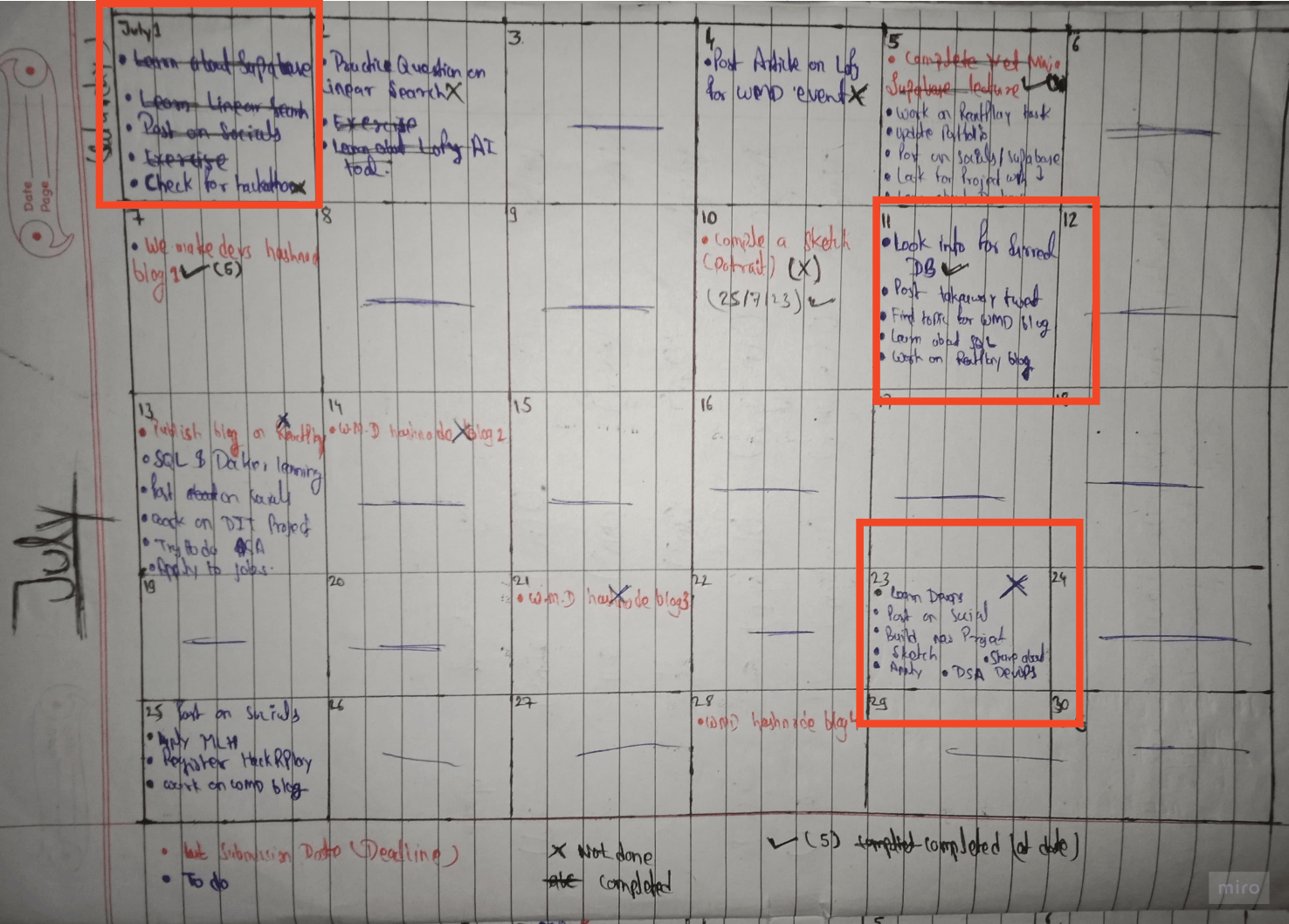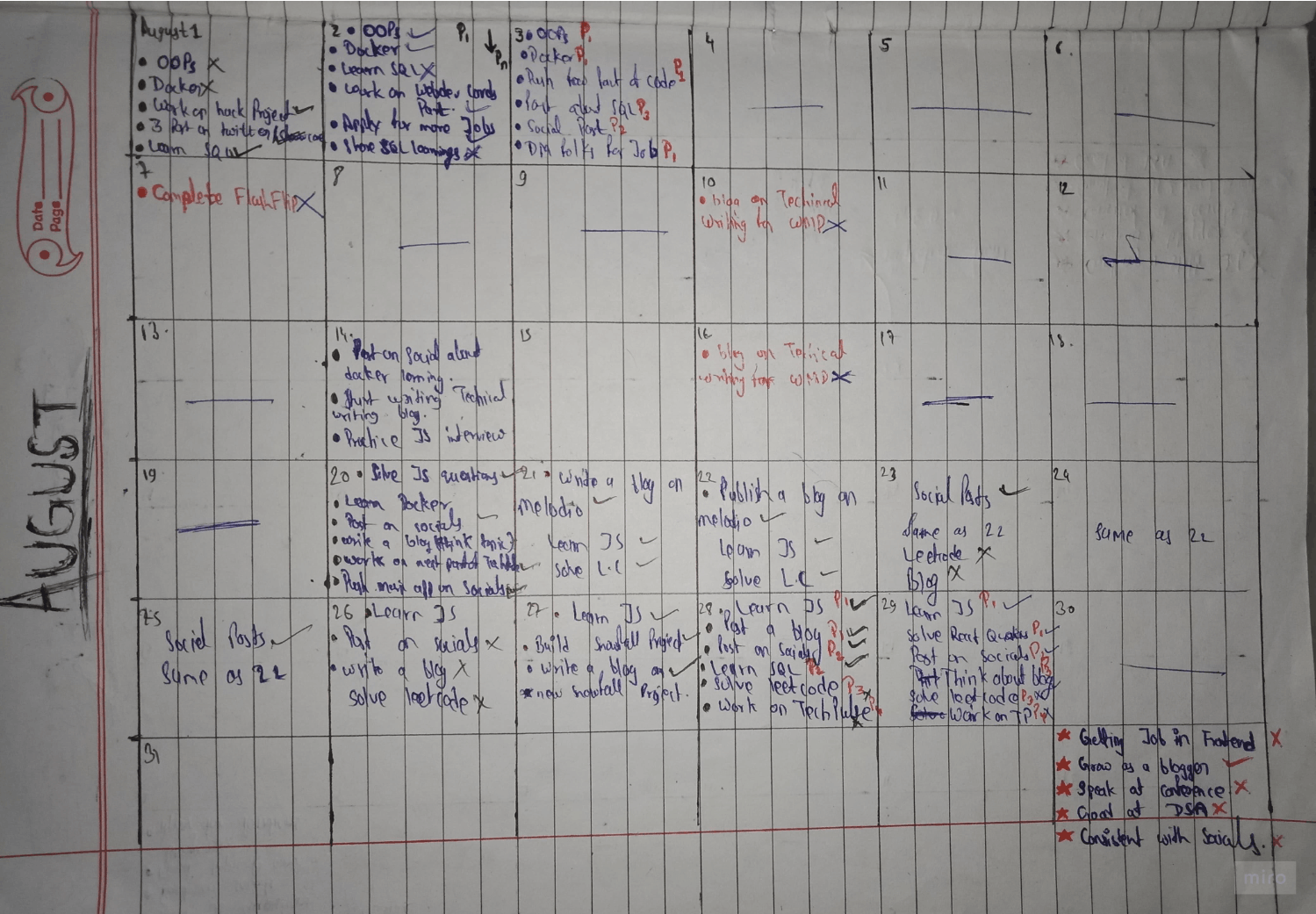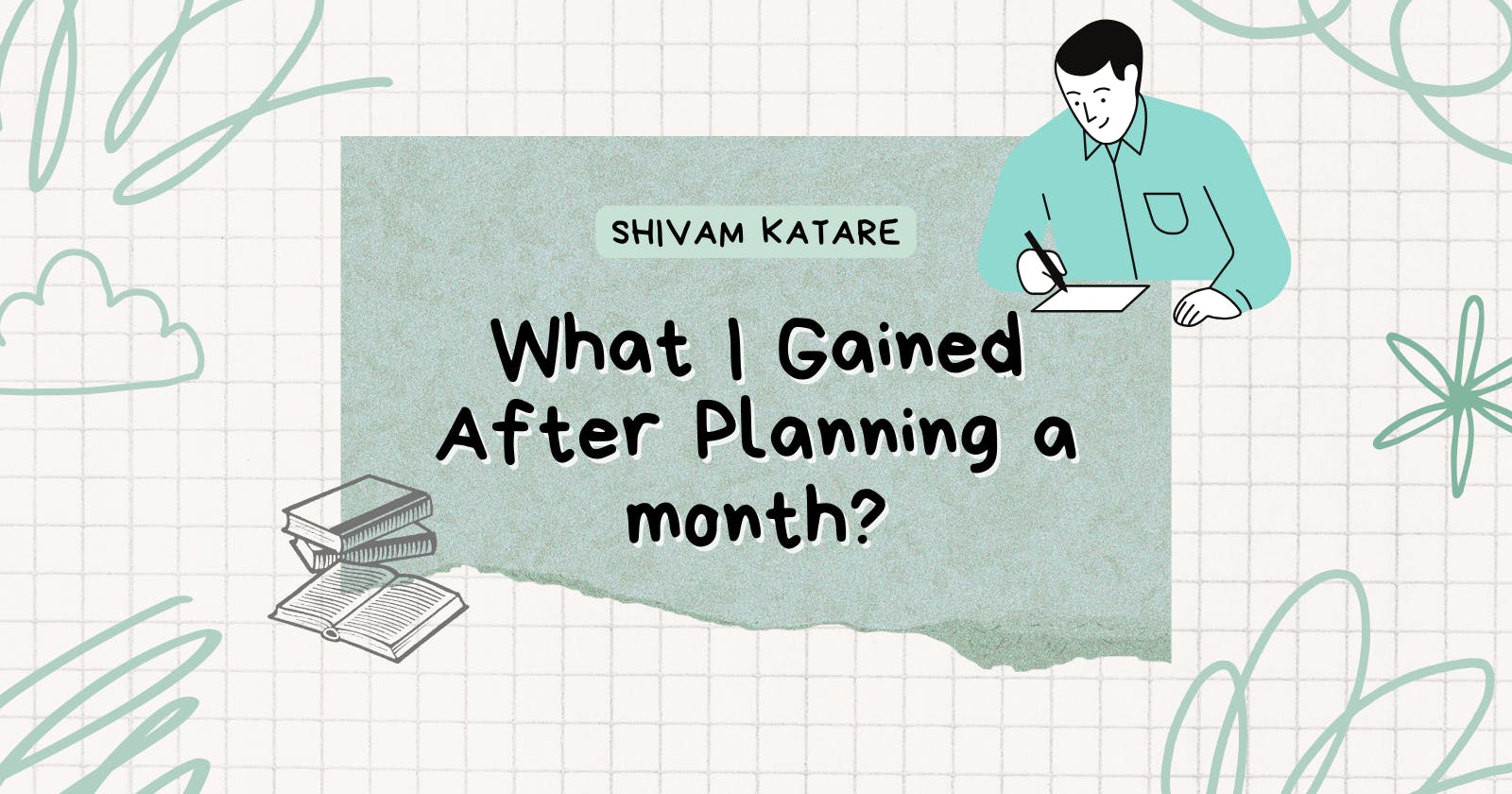Planning is essential for success in life. Whether it's our studies, careers, or personal goals, having a plan is the first step toward achieving them.
An effective plan has three main components:
What do you plan to achieve? A clear goal or objective is crucial. Vague goals like "study more" or "work harder" won't cut it. Instead, focus on specific outcomes like "
learn JavaScript in the next 3 months" or "get a new job within 6 months".How will you achieve it? Once you have a goal, you need a plan of action with concrete steps and a timeline. Break down large goals into smaller, manageable tasks. Set deadlines for each task.
Are you taking action? The most important part is executing your plan and taking consistent action. Without action, even the best-laid plans will come to nothing.
In this blog, I will share how I planned and achieved several goals over the past 3-4 months, including landing my current job as a developer.
Having a plan made all the difference. So let's take the next 6-7 minutes to read how you can plan effectively to achieve your goals.
Where did I start from?
Before 2023, planning was something I had never done properly in my life. In 2022, when I was doing the #100DaysOfCode challenge and got my first job, I started facing issues balancing side hustles with my full-time role.
Though my job was remote, I spent most of my time focused on just one thing. But at that time, I didn't realize the issue.
In April 2023, when I got a new job as a Software Engineer (also remote), I realized something was wrong with my routine.
I would wake up around 9 AM IST (too late for me), have breakfast, and watch TV before starting work around 1 PM IST for my Berlin-based company. After that, without any breaks, socializing, or side hustles, I would work for 10+ hours straight, sometimes without drinking water for 3-4 hours. Then I would switch off my laptop around 4 AM IST and sleep.
After a few months of this terrible routine, I realized I needed to make a plan and set daily targets.
That's when I decided to start planning properly. I knew I needed:
• A healthier sleep schedule
• Breaks during work hours
• Time for side hustles and socializing
So I set a goal: make a concrete plan that incorporates these aspects to improve my routine and productivity.
That's where my planning journey began - by realizing the need for a change and setting an initial goal.
How did I plan and what did I plan?
Around June 30th, I started by making a calendar in my notebook and writing down important dates.

First, I blocked out the main targets for different dates:👇

• Write a blog post by July 7th • Complete Supabase lectures by July 5th
• Publish blogs every 7 days • Set goals for what to achieve by the end of the month
After blocking out the main targets, I started planning each day. The first thing I kept in mind was setting achievable targets.
On the morning of each new day, I would write down everything I needed to do that day.👇

I tried this process for a few days and followed it for the whole month of July. Since this was my first time planning properly, I made many mistakes in planning each day and missed some days due to extra work.👇

As you can see in the image, there are a few days where I planned my day and many where I didn't. By the end of the month, I didn't achieve much but I did make my routine healthier than the previous months.
This was a good start - simply making a plan and writing things down, even if imperfectly, was a big improvement. It helped me be more intentional with my time and tasks.
The key lessons I learned were:
• Start small and be realistic
• Make adjustments as you go
• Consistency is more important than perfection, especially at first
The process of planning, even if I didn't follow it perfectly, helped establish better habits that would improve over time.
What did planning gain me?
I followed the same planning process in August that I started in July.

I was able to achieve more in August compared to July. After reading Eleftheria Batsou's blog on how she became a tech conference speaker as a newbie.
Her blog gave me more ideas on how to be consistent with planning. Over the past 3-4 months with consistency, I have achieved a lot:
• Got a new role as Chief Creative Officer at ShowwCase
• Gave my first tech talk online
• Contributed more consistently to open-source projects
• Selected as a student at DevRel Uni and learned a lot about dev relations
• Gave my second tech talk online at ReactPlay's Open Mic event
• Joined HumansOfTech as a writer
• Got a new remote job as a Frontend Developer
Last month (October), I planned well which helped me balance my college studies, interview preparation, job work, community contributions, and personal life.

The key benefits of planning were:
I was able to achieve more goals and take on new opportunities
I contributed more meaningfully to open source and the developer community
I balanced my work, studies, and personal life more effectively
My productivity and time management improved noticeably
Even small improvements in planning - writing things down, setting targets, reviewing progress - can compound over time to make a big difference. As I got better at planning, so did my results.
Things to keep in mind when planning...
Planning a month does not guarantee that we will achieve all our goals. Achieving goals depends on several factors:
How realistic your goals are? Set goals that are challenging but achievable.
Consistently working towards your goals. Don't procrastinate.
Not taking on too much. Only commit to goals you have the capacity for.
Enjoying small achievements along the way. They motivate you to keep going.
Tracking smaller milestones, not just end goals. They keep you on track.
Celebrating small wins, even if you don't meet all monthly goals. Focus on what you did achieve.
For example, in October my goals were to get a new job offer and post blogs consistently. I failed at the blogging goal but achieved the job goal.
This taught me to:
• Celebrate the job achievement
• Refocus my efforts on the blogging goal for next month • Reward myself for staying motivated
We can be our source of motivation. We know ourselves best - where we need more focus, and when we deserve a reward.
In summary, when planning:
• Set realistic goals
• Work consistently
• Track progress against smaller milestones • Enjoy the journey, not just the destination • Celebrate wins, big or small
• Reflect and adjust your plans
Hope this helps give you some ideas for your planning!
Let's connect and grow together! You can find me on Twitter, LinkedIn, and ShowwCase where I share things related to web development, open source, and technical writing.
"I'll see you in the next blog. Bye 👋!"

